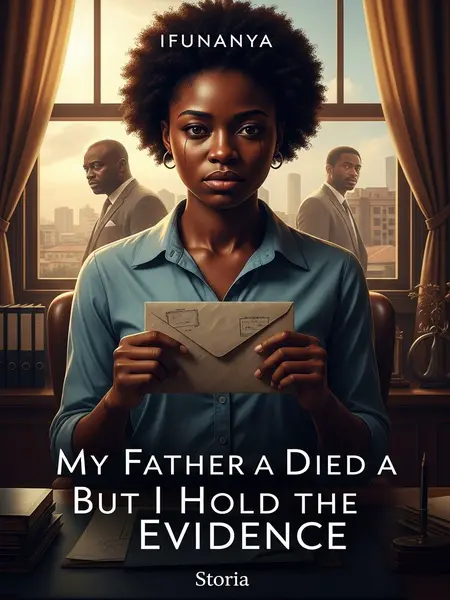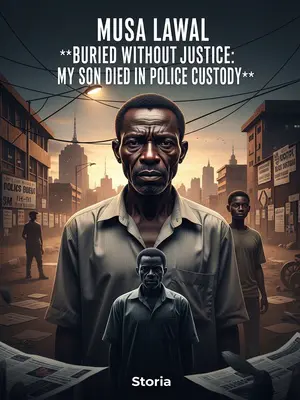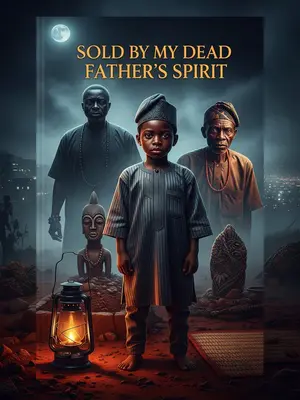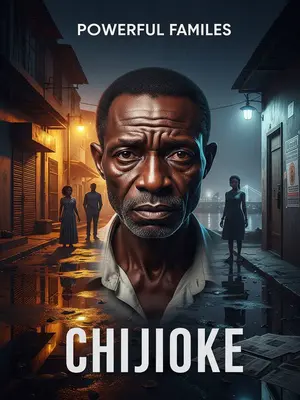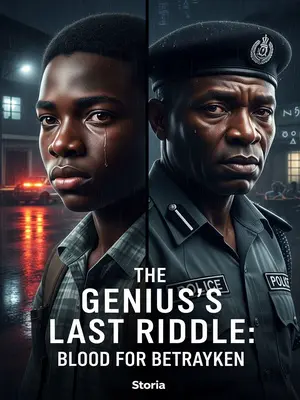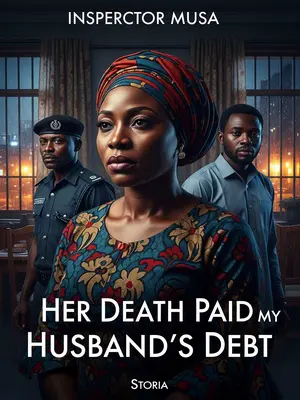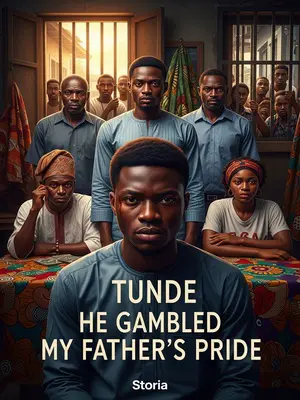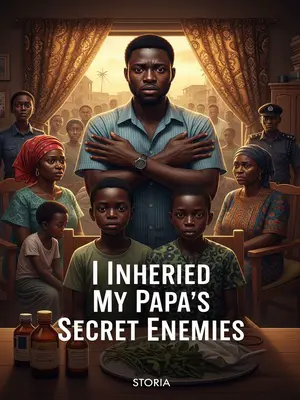Chapter 7: Shame, Burial, and Aftermath
……
Next day, police confirm the dead body.
No DNA, no test—na only ring for finger, small piece of cloth, na so dem confirm say na my papa.
When I be five, my papa die for explosion for that fireworks warehouse.
Since then, every harmattan I dey smell gunpowder for dream.
The reason come out quick: na accident.
Police say, "Na cigarette cause am." Nobody fit argue.
The pond warehouse dey store plenty bad fireworks, dem dey wait to destroy am. Some get leaking powder, so if you move am, metal dust go full air.
My papa dey always warn me: "No play with powder. If e catch fire, e dey fly like wind."
Papa no careful; his cigarette no quench well, so dust explode, fire start.
Everybody say na small mistake, but the mistake big pass the world.
The burning dust already bright, but the explosion blow roof comot, send all fireworks go sky, everybody come see show.
Na the kind show wey person dey pay ticket for city. That night, God just open heaven for free.
Papa die under the most beautiful fireworks. When dem carry the burnt body, my mama no wan make I see, she cover my eyes.
But small pikin dey stubborn. I peep, I see black body, I smell burnt flesh. The thing haunt me till today.
But I still peep small—and e pain me.
After that day, I dey fear fire, even for birthday.
Strange fireworks, papa die, long night... I think say na end of the world; how life go continue?
I just dey, no fit even cry.
Tears dry, heart heavy. My mama just dey rock me, her own face dry too.
……
Later, factory investigate the cause.
Town people gather, committee dey set up. Some say make dem close warehouse, others say na spiritual attack.
Safety wahala don happen before, two times, people wound—fireworks work dey risky.
The last one, worker nearly lose hand. But nobody die till my papa own.
But none happen for midnight, or with that kind fireworks show.
E shock everybody. People dey talk anyhow.
So why my papa go warehouse for midnight?
Rumour start to fly—village no dey ever quiet for matter wey concern money.
The workers all talk say, that night, my papa go thief fireworks. He no fit buy, so he use his position.
Eze mama even say, "If you see as Nnamdi dey eye that place, you go know say e get plan." But na gossip.
To avoid wahala for the ones he thief, maybe he dey mark good ones as bad during work.
Some people say he go mark good fireworks as spoil, then hide am for warehouse. I hear am from market women.
Once he do am, he fit store good ones for warehouse, find way sell am for another place. After all, manager no dey go pond warehouse, so my papa get free hand.
You know as Igbo people dey reason—if person dey suffer, dem believe say na by force e wan hammer.
If he wan make money, chance dey. To end like this, na just bad luck.
But for my mind, no be so. My papa no fit do that kind thing.
I too small—just five—so I no fit talk say I sabi my papa well. But I no believe say he fit do that kind thing.
I remember how he dey warn me against lie. "Ifu, no touch wetin no be your own." That one still dey ring for my ear.
If na true say my papa go thief fireworks, maybe na for me. I like fireworks, dey go watch people own, and after the neighbour boy block me, I pretend say I no care, but I cry for house.
Sometimes, I go hear my papa sigh for night. I go pretend sleep, but I dey hear as him and mama dey talk. "Ifunanya too dey suffer. If to say I fit buy small for am..."
Papa see am, feel sorry, so he go out late.
Na that thought dey kill me—say na my wahala push am.
If na so, then na my fault. I dey find wetin no reach me, I wound my papa pride, bring wahala for am.
If say na me cause am, how I go forgive myself?
After I reason am, I understand.
No matter how I try, I still dey find reason to blame myself.
For burial, I cry for my papa photo. People think say na love, but na guilt. I no fit tell my mama.
As dem dey lower coffin, my tears dry. Na shame, na pain, na confusion.
People dey whisper, dey point my papa coffin. My mama try argue small, then just keep quiet, dey sit by the coffin, dey burn paper.
Her hand dey shake as she burn paper. Some old women join her, dey mutter prayer.
I dey with her.
I hold her wrapper, I dey shiver. Sun dey hot, but my body cold.
The neighbour boy no gree rest. He come tell me for ear, Your papa na thief—e good as e die.
Eze talk am with wicked smile. I fit never forget that day. My hand dey pain me, but my anger pass my age.
I shake with anger, carry half-burnt paper from fire, throw am for am.
He dodge, laugh. But the women shout, "See this pikin!"
My papa die in a way wey look fine but na shame—fire and gossip finish am. That supposed glory, that big fireworks, na wicked joke.
If to say life fair, na hero e suppose be. But for Naija, if you poor, na shame dey follow your name.
Plenty people come show face. Officer Musa too come.
He wear his police cap low, just dey watch everybody, no talk much. Some people greet am, he nod, look my mama, then look ground.
He look my mama, wey don lose hope, pity but no fit help. He just tell her to try manage, say she still get pikin to raise.
His voice low, he squeeze her hand. My mama no talk, just nod.
When the factory manager and his son enter, everywhere quiet.
Chief Okafor wear white lace, beads for neck, his son follow behind, phone for hand. People shift, make space.
Manager name na Chief Okafor, man for his fifties, always get power. When he show, people quiet.
Even birds stop to sing. Chief voice carry authority—everybody listen.
But this time, he gentle. He bring one big brown envelope, inside na thirty thousand naira.
For that year, na big money. E be like say e wan settle matter quick.
He pat my mama shoulder, sigh, talk say,
"I no care why Nnamdi go warehouse that night. For my mind, he still be good man, just get problem wey he no fit solve. Even one kobo fit disgrace hero. I believe Nnamdi no bad. No mind wetin people dey talk—just try live with your pikin."
Chief voice soft, but e heavy. As he push envelope, my mama hand dey shake.
As he dey talk, he push the envelope give my mama.
For Igbo land, big man dash you money for burial, e fit mean say make you no talk again—matter don end. Na like blessing, but sometimes, na hush.
Chief Okafor say he no mind, but to give big money like that, na as if he confirm say my papa thief.
Some people dey whisper, dey nod. For their mind, matter don close.
Warehouse explode, man die—no real evidence, but he close the matter.
Like say na settlement. No more noise, no more fight.
But that explanation make sense—otherwise, how you go talk about my papa action?
If you see the way people dey nod, you go know say everybody wan forget the case. Na Naija style.
Papa go warehouse after work, die because of bad mind and carelessness, so dem no count am as work injury, and he destroy warehouse.
So no benefit, no proper burial grant. Only talk, only envelope.
But Chief Okafor still give better compensation.
People dey clap small. Some women dey whisper say, "Chief get good heart."
Mama hold the envelope. Her white face slowly red.
She just look ground, tears dey drop. Her finger tight for envelope.
She bow head, body dey shake, teeth dey knock. At last, her whole body just collapse, she sigh small, like say all her strength finish.
People gather, fan her with wrapper. I hold her, I dey cry again.
She whisper, "Na Nnamdi do bad. Chief, you be good man. Our family owe you..."
Her voice dey fade, people dey look ground. That shame heavy for air.
That moment, wahala just swallow me.
I no fit breathe. My head heavy, my eye dey turn.
I hear the neighbour boy voice for my ear—You see am? Your papa na thief. E good as e die.
E no gree leave my head, like stubborn spirit.
I see Chijioke, manager son, squat for my front, remember as my papa chop beating for factory, as Chijioke help am get up.
Chijioke frown, but try smile. He try comfort me, but the gap between us wide like River Niger.
I see Chijioke bring out fireworks sticks, give me, talk gently, "If you wan play fireworks, come meet uncle. Uncle get plenty," then I remember my papa die under fireworks…
His hand soft, but my heart dey harden. I no fit collect am.
I no fit hold am again. For the burial, I shout, sharp like the sound of fireworks, make everybody jump.
The shout loud, people scatter. Some women scream, "Jesus!"
—This pikin dey craze?
One uncle talk, "Na madness dey start like this."
—Chai, poor child, shock don catch am.
Old women just dey rub my head, dey spray anointing oil.
People dey whisper. Chief Okafor face change quick.
He look my mama, frown. He call Chijioke, say, "Make we dey go."
My mama sharp, hug me, use her body cover my mouth, no let me shout.
She press my head to her breast, dey beg. I fit feel her heart dey race.
Her hand press my head, hold me down, dey beg Chief Okafor.
"Chief, you help us well. I no get anything to pay you. This money... this money, I no fit reject. Nnamdi don go, I useless, na widow and orphan remain, we need the money. Ifunanya still small, no understand—abeg forgive her."
Her voice crack. I dey sob, my body dey hot, but her arm no gree leave me.
Then she collect the fireworks sticks from Chijioke hand, say, "Brother Chijioke, thank you for Ifunanya."
Her hand steady, but her eyes empty. Chijioke just nod, drop the sticks for ground, waka commot.
Chijioke frown look my mama, then just smile small. Father and son waka early.
As dem dey go, some people begin follow. In Naija, nobody wan stay for place wey wahala don show.
Others see the thing, soon waka too.
Before you know, na only us remain.
Na only me, my mama, and my papa coffin remain.
Wind blow, dust rise. Burial cloth dey shake like flag. I dey sniff, my tears dry.
White burial cloth dey blow, ashes of burnt offering full air, the fire for brazier almost die—everywhere cold.
Women dey wail, dey throw powder for air, old men dey break kola, call ancestors make dem guide Nnamdi spirit.
You fit hear crickets, nothing more. The fire small, like say e go quench soon.
I still dey my mama hand, her chest block my mouth. I dey sob, no fit breathe.
I choke, but I no fit talk. My head dey mama chest, I dey feel her heart beat like drum.
My papa burial end like that.
After everybody waka, my mama just sit. Me, I just dey. The world quiet.
After that, I no like fireworks again.
Anytime I hear the crack, my body dey shake. Even for university, if I hear fireworks, I dey run hide.
Fireworks dey cold quick, just vanish, leave dust for sky—nothing dey lonelier.
For my mind, e be like say na curse. Fireworks shine, but e dey end for ashes.
Anytime I hear fireworks, my mind go run go that mad, sad night for 1996.
Since that day, every December, I dey pray make nobody fire fireworks near me.
My mama rub my back, dey hum old Igbo song, but the pain no gree go.
